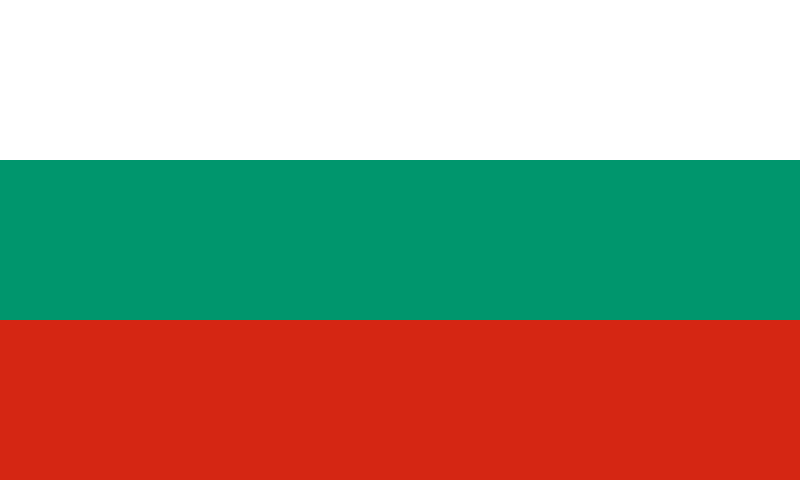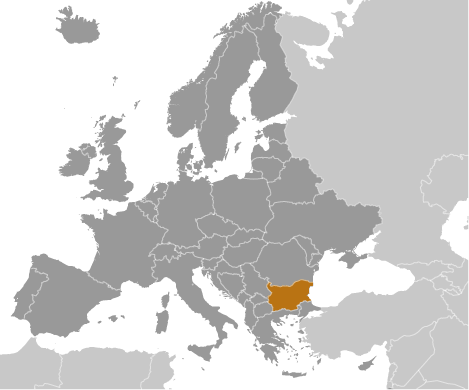
Bulgaria
What's New
-
16 December 2015
The Bulgarian National Assembly Nov. 26 adopted amendments to the Access to Public Information Act (APIA) to enhance proactive disclosure, encourage electronic requests, and facilitate re-use of information. The amendments introduce an extended list of 17 categories of information subject to proactive online publication replacing the current four (Art. 15), according to Alexander Kashumov, Head […]
-
22 October 2015
The Bulgarian National Assembly on Oct. 6 adopted at first reading amendments to the Access to Public Information Act (APIA) that emphasize the publication of more documents online. The amendments would expand the list of information to be published online and provide a timeline. The heads of public bodies would be tasked with reviewing proactive […]
Read more news….
freedom of information: overview
Article 41 of the Bulgarian Constitution of 1991 states:
(1) Everyone shall be entitled to seek, receive and impart information. This right shall not be exercised to the detriment of the rights and reputation of others, or to the detriment of national security, public order, public health and morality.
(2) Citizens shall be entitled to obtain information from state bodies and agencies on any matter of legitimate interest to them which is not a state or other secret prescribed by law and does not affect the rights of others.
In 1996, the Constitutional Court ruled that the Article 41 of the Constitution gives the right to information to any person, however, the right needed to be set out by legislation. There were a number of lower court cases that rejected requests by citizens and NGOs to obtain information.
The Access to Public Information Act (APIA) was enacted in June 2000. The law allows for any person or legal entity to demand access to information in any form held by state institutions and other entities funded by the state budget and exercising public functions. Requests can be verbal or written and must be processed within 14 days.
LEARN MORE: in-depth overview | news archive | further reading | excerpt from Global Survey
-
25 March 2015
A new report by the Access to Information Programme (AIP) in Bulgaria proposes ways to handle five major implementation problems. Based on its “18 years of experience in the monitoring and advocacy for enhanced transparency and accountability of public bodies and more active exercise of the right to information,” AIP formulated recommendations for necessary legislative […]
-
3 April 2014
The Access to Information Progrmme in Bulgaria has released the results of its ninth audit of transparency at national and local institutions. The aim of the audit, which AIP has performed since 2006, is to evaluate how the executive bodies fulfill their obligations for proactive publication of information online under the Access to Public Information […]
-
7 October 2013
By Toby McIntosh Only this audience would laugh so heartily at five surrealistic stories about government denials of access to public information. The incredulous appreciation of unfortunate stories stemmed from shared experience. The 100 persons attending the annual awards ceremony in Sofia, Bulgaria, were a community celebrating the pro-transparency efforts of journalists, activists and public officials. “Golden Key” […]
-
9 November 2012
The Bulgarian sports ministry has been ordered to provide information about its contracts with the Bulgarian Ski Federation, and another sport-related transparency case is pending, according to information from the Access to Information Programme. The Ministry of Physical Education and Sports was instructed to provide information on all its contracts (their objects, prices, documents on […]
-
21 June 2012
The Access to Information Programme (AIP) Annual Report Access to Information in Bulgaria 2011 is now available in English online. AIP also recently sponsored a conference on FOI, described here. The report contains: recommendations for facilitating the access to information and increasing the transparency and accountability of the public administration; detailed analysis of the effective access […]
-
15 July 2011
The Access to Information Programme (AIP) in Bulgaria has identified persistent problems facing those seeking government information and made a series of recommendations. The eleventh annual report containing the information — Access to Information in Bulgaria 2010 — is now available in English online. AIP identifies several persisting problems: Lack of unified practices in terms […]
-
16 May 2011
The Access to Information Programme in Bulgarian has found “a chaotic variety” of structures and information on government websites. The audit was designed to evaluate the implementation of the obligations under the Access to Public Information Act (APIA) for online publication of certain categories of information. The study also examined the performance under other regulations […]
-
17 December 2010
A Bulgarian court Nov. 11 compelled the release of minutes of a meeting between President Georgi Parvanov and former Russian President Vladimir Putin held in January 2008. The complaint was brought by the journalist Lachezar Lisicov with the help of Access to Information Programme (AIP). “The minutes were of a huge public interest as crucial […]
-
14 April 2009
Over the past few months, the World Bank has recently published a series of extremely useful reports by experts on access to information laws. Using comparative case studies, together these reports provide an overview of the whole life cycle of access to information (ATI) legislation, from adoption to implementation and enforcement. One report examines the role of civil society groups in the formulation and adoption of access to information laws in Bulgaria, India, Mexico, South Africa and the United Kingdom. Another examines the institutional and logistical nuts-and-bolts of implementation, using Mexico as a case study, while the third report looks at models of enforcement in several countries: South Africa, Mexico, Scotland, India, and Hungary.
-
28 September 2008
Washington, D.C., September 28, 2008 – Today’s celebration of International Right-to-Know Day marks a new watershed in the global reach of freedom of information laws – now on the books in more than 80 countries – and features celebrations in countries ranging from Mexico to Moldova, according to postings today on the www.freedominfo.org virtual network […]
-
21 May 2007
Today, members the International Freedom of Information Advocates Network sent a letter to the Bulgarian National Assembly opposing draft amendments to the Bulgarian access to information law accepted by the Assembly earlier this month. Sixty-eight organizations and individuals from 37 different countries joined the letter of protest, arguing that the proposed amendments would significantly weaken […]
-
22 September 2006
UPDATE – 11 OCTOBER 2006 In response to a subsequent HCLU request, the Hungarian National Security Superintendence recently released an additional, previously secret NATO document entitled “Directive on the Security of Information,” dated 2005. The directive, enacted in support of NATO Security Policy C-M(2002)49, contains mandatory provisions related to classification, marking and handling of sensitive information, […]
-
28 September 2005
Since 2002, freedom of information advocates around the world have been working together to promote the right of access to information for all people and recognize the benefits of transparent and accountable governments. We use this day as a way to share ideas, strategies and success stories about the development of freedom of information laws […]
-
16 June 2004
Changes in the information regime in Bulgaria have been slow and incremental since the fall of the communists in 1989. But the work of the Access to Information Programme, an NGO that has been at the forefront of the freedom of information movement in that country, has succeeded in opening up what was once one […]
-
11 October 2003
by Thomas Blanton The International Herald Tribune, October 11, 2003, p. 6 Last month (September 23, 2003), Armenia became the 51st country in the world to guarantee its citizens the right to know what their government is up to. Armenia’s new freedom of information law is the latest outpost of the worldwide movement towards opening […]
-
21 January 2003
The Bulgarian online news resource, novinite.com reports that the Sofia police, on orders of the district governor, have helped the newly formed State Commission on Information Security take over the offices of the so-called Andreev Commission, which was set up after the fall of communism to look into the dossiers compiled by the communist special […]
-
15 July 2002
By Thomas Blanton Published in Foreign Policy, July/August 2002 During the last decade, 26 countries have enacted new legislation giving their citizens access to government information. Why? Because the concept of freedom of information is evolving from a moral indictment of secrecy to a tool for market regulation, more efficient government, and economic and technological […]
-
1 June 2002
Some 20 countries are about to embark on pilot programs with the World Bank in which they will disclose and disseminate more information than they have in the past – that is, more than what Bank policy currently requires. The exact dimensions of this effort will become clearer once the Bank makes an official announcement […]





















